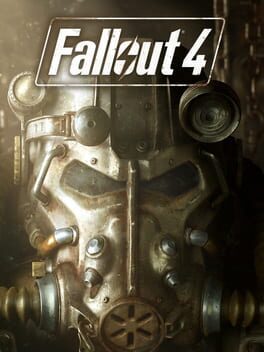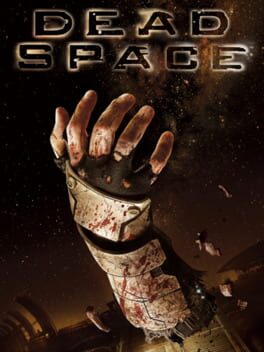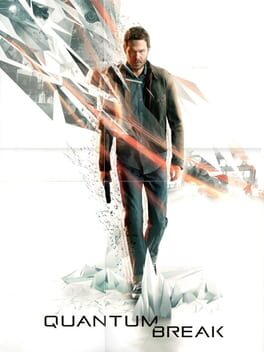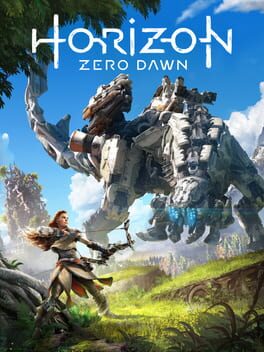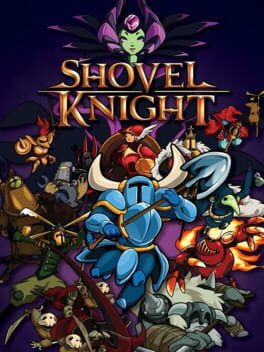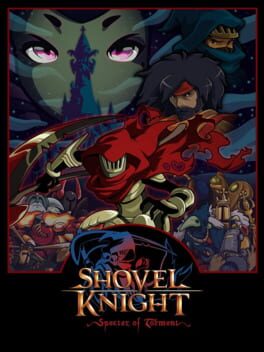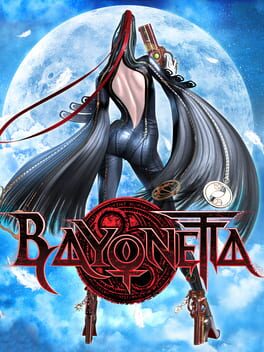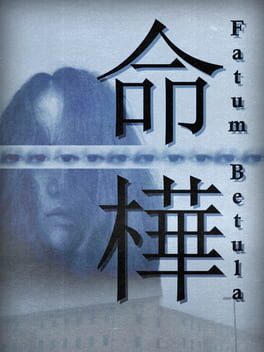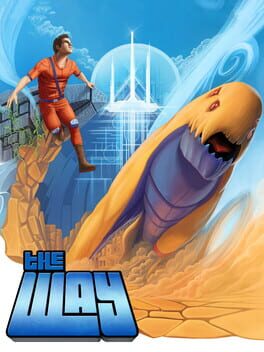carlos
18 reviews liked by carlos
Fallout 4
2015
Dead Space
2008
Quantum Break
2016
Horizon Zero Dawn
2017
This was one the games that I most anticipated in 2017. I gotta say though, it was a disappointment. Though the overall aesthetic is quite impressive, it manages to be very, very bland in all other aspects, borrowing heavily from other open-world RPGs (and sci-fi media) that came before it. Lots of style and very little substance.
Shovel Knight
2014
Shovel Knight (base game) is probably the most solid 2D plataformer I ever played. Granted, I'm not much of a retro gamer, but you don't need to listen to me, it is pretty much agreed upon as of 2020 that this is one of the best games of 2014. I don't really have a lot of experience in the genre to establish enough comparative ground for a through and through analysis, so I'll be brief.
Level design in this game really takes the cake for me as the fundamental aspect of this game that makes it so good. Every level is aesthetically and mechanically distinct. Story is good enough for a game that puts itself as an homage to retro games. Songs and sound design in general are competent. Shovel Knight (the actual Shovel Knight, not the game) mechanical design is simple and very effective, but with one issue I cannot ignore: I found in myself using fireball pretty much the entire game - all of the other magic abilities seem to have very marginal use. It's nice to have a lot of items when you have freedom to tackle situations any way you want or when the game throws different situations at you that require one correct answer. But neither is the case here.
Another low point I found to be the difficulty. For me, I found that the game started challenging but proceeded to fluctuate a lot in terms of difficulty in the middle to the end of the experience. The actual final boss of the game is not particularly difficult compared to the last two boss encounters that precede it and The Flying Machine and Explodatorium were levels way harder for me than most of the endgame. But I must stress those are very small issues. It is either competent or excellent at everything else. Great game.
Level design in this game really takes the cake for me as the fundamental aspect of this game that makes it so good. Every level is aesthetically and mechanically distinct. Story is good enough for a game that puts itself as an homage to retro games. Songs and sound design in general are competent. Shovel Knight (the actual Shovel Knight, not the game) mechanical design is simple and very effective, but with one issue I cannot ignore: I found in myself using fireball pretty much the entire game - all of the other magic abilities seem to have very marginal use. It's nice to have a lot of items when you have freedom to tackle situations any way you want or when the game throws different situations at you that require one correct answer. But neither is the case here.
Another low point I found to be the difficulty. For me, I found that the game started challenging but proceeded to fluctuate a lot in terms of difficulty in the middle to the end of the experience. The actual final boss of the game is not particularly difficult compared to the last two boss encounters that precede it and The Flying Machine and Explodatorium were levels way harder for me than most of the endgame. But I must stress those are very small issues. It is either competent or excellent at everything else. Great game.
1 - This is gonna be a long one.
2 - This review has no story spoilers.
3 - I recommend reading my analysis of the Shovel Knight's base game first.
After finishing Shovel Knight (SK from now on), I gave this one a try, seeing as it is common opinion that Specter of Torment (SoT from now on) is better than the base game itself. Because of that, I came with high expectations about this experience and I gotta say: I found it somewhat disappointing.
I do think I understand where the mainstream opinion comes from, so I'm gonna talk first about what seems to be the ways that SoT seems to be better then SK and I'm gonna try and explain why I don't really feel that to be the case. I do concede before starting two things: that the overall themes and aesthetics are more authentic and focused than the original, that feels basic and more dependent on nostalgia in comparison. And that the history of SoT is undisputedly more evolved. It just has way more to it than the serviceable story and of SK but it's really nothing to sing home to outside of the 'retrogamer' niche, so I'm not gonna talk about it. It also has some nice elements that are best left unspoiled.
Movement and combat, the two main cornerstones of this game, are faster, more fluid and more rensposive. Those are not necessarily good things, but I think that instinctively everyone enjoys being more in control of your own character at first, even if that is not in unity with the rest of the game's design. It just feels better by example to be able to mash the attack button and get an actual corresponding speed to your inputs instead of the slow animations of Shovel Knight. In general, you feel much more in control this time around, being able to run faster, wall run, wall jump and even move around in the air using the dash attack mechanic on enemies and props. In theory it gives the developers a lot more room to create plataforming and combat challenges and gives the player more ways to think about how to act given a certain situation.
There is also more inventive items this time around, which grants a lot of newer and more exciting possibilites in gameplay when you contrast SoT with SK. I mainly used Will Skull because who doesn't like Estus Flasks(?) and the Hover Plume for being able to cheat some plataforming segments and even sometimes gather gold I lost. There is also a new selection of armors, I really only used the one that diminishes your health but makes your attack more powerful, the other did not seemed interesting. You can also upgrade your magic items by paying the same gold you use to buy armors, which brings a theoretically nice element of player choice.
My problem with the way Specter plays is that the fact that he's fast feels more like a feel-good cop-out decision from the devs to appease player criticism than a thoughtfully implemented mechanical change that brings new and challenging situations to the table. Like I said, it feels good to be able to attack fast, but when most enemies die in two or even one hit, it kind of destroys the careful balance of the game that in many ways is still designed around SK. It's just easy to get hit, mash the attack button and kill everything around you with no effort, especially with the right armor upgrade.
The dash-attack mechanic is also something that at first felt really good and made me excited about the game would offer, but it quickly became that I'd mostly just press the attack button in a straight pattern until enemies died, something especially common in sub-boss encounters at the middle of the levels.
On the subject of magic items, the problem is now two-fold: Not only most of the magical items are superfluous, two of them are actually overpowered. Those are the ones I previously mentioned, the Will Skull and the Hover Plume. The problem with the Will Skull is that it just heals too much for how much magic you get - you get a few points every time you kill something regardless if it's the first or not and it's common to come across little refils on the floor. Either It should replenish less health or you should receive less darkness overall, and I tend towards the last one because I believe the Hover Plume also feels way less expensive than it should, considering it's basically a way to cheat out plataforming abilities that would otherwise prove challenging.
At first I thought the armor set that gives you more damage but takes out your health was going to make the game more challenging, but it actually makes it easier for you to play dumb because it's so easy to regenerate health. The only way to make the game actually challenging overall is to break all the checkpoints for cash, but I always afforded all upgrades to magic items and had no interest in playing with other types of armor. I also feel that breaking all of the checkpoints makes the game way too hard, so it's either very easy or too hard for me to feel motivated to play.
On the plataforming side of things, the feeling that the game has many more ways to move around excited my imagination and made me wonder the ways which the game was gonna ramp up it's difficulty, but I found that outside here and there it never really does anything too hard with the plataforming. It shows all of it's tricks very early and doesn't really develops from them, which is a shame. I only felt really challenged in the elevator mini-game and some segments in later levels. And again the last level is not really that much of a climax in terms either combat or plataforming.
Overall, Specter of Torment brings a lot of new ideas to the table but some of them don't really mash together well and the game suffers for it. Every time something new appeared I felt that it would lead to more well developed places than the game actually took me. I'm not sure it is any better than the more concise design of Shovel Knight, even though the story certainly is more rich. One step forward, one step back.
2 - This review has no story spoilers.
3 - I recommend reading my analysis of the Shovel Knight's base game first.
After finishing Shovel Knight (SK from now on), I gave this one a try, seeing as it is common opinion that Specter of Torment (SoT from now on) is better than the base game itself. Because of that, I came with high expectations about this experience and I gotta say: I found it somewhat disappointing.
I do think I understand where the mainstream opinion comes from, so I'm gonna talk first about what seems to be the ways that SoT seems to be better then SK and I'm gonna try and explain why I don't really feel that to be the case. I do concede before starting two things: that the overall themes and aesthetics are more authentic and focused than the original, that feels basic and more dependent on nostalgia in comparison. And that the history of SoT is undisputedly more evolved. It just has way more to it than the serviceable story and of SK but it's really nothing to sing home to outside of the 'retrogamer' niche, so I'm not gonna talk about it. It also has some nice elements that are best left unspoiled.
Movement and combat, the two main cornerstones of this game, are faster, more fluid and more rensposive. Those are not necessarily good things, but I think that instinctively everyone enjoys being more in control of your own character at first, even if that is not in unity with the rest of the game's design. It just feels better by example to be able to mash the attack button and get an actual corresponding speed to your inputs instead of the slow animations of Shovel Knight. In general, you feel much more in control this time around, being able to run faster, wall run, wall jump and even move around in the air using the dash attack mechanic on enemies and props. In theory it gives the developers a lot more room to create plataforming and combat challenges and gives the player more ways to think about how to act given a certain situation.
There is also more inventive items this time around, which grants a lot of newer and more exciting possibilites in gameplay when you contrast SoT with SK. I mainly used Will Skull because who doesn't like Estus Flasks(?) and the Hover Plume for being able to cheat some plataforming segments and even sometimes gather gold I lost. There is also a new selection of armors, I really only used the one that diminishes your health but makes your attack more powerful, the other did not seemed interesting. You can also upgrade your magic items by paying the same gold you use to buy armors, which brings a theoretically nice element of player choice.
My problem with the way Specter plays is that the fact that he's fast feels more like a feel-good cop-out decision from the devs to appease player criticism than a thoughtfully implemented mechanical change that brings new and challenging situations to the table. Like I said, it feels good to be able to attack fast, but when most enemies die in two or even one hit, it kind of destroys the careful balance of the game that in many ways is still designed around SK. It's just easy to get hit, mash the attack button and kill everything around you with no effort, especially with the right armor upgrade.
The dash-attack mechanic is also something that at first felt really good and made me excited about the game would offer, but it quickly became that I'd mostly just press the attack button in a straight pattern until enemies died, something especially common in sub-boss encounters at the middle of the levels.
On the subject of magic items, the problem is now two-fold: Not only most of the magical items are superfluous, two of them are actually overpowered. Those are the ones I previously mentioned, the Will Skull and the Hover Plume. The problem with the Will Skull is that it just heals too much for how much magic you get - you get a few points every time you kill something regardless if it's the first or not and it's common to come across little refils on the floor. Either It should replenish less health or you should receive less darkness overall, and I tend towards the last one because I believe the Hover Plume also feels way less expensive than it should, considering it's basically a way to cheat out plataforming abilities that would otherwise prove challenging.
At first I thought the armor set that gives you more damage but takes out your health was going to make the game more challenging, but it actually makes it easier for you to play dumb because it's so easy to regenerate health. The only way to make the game actually challenging overall is to break all the checkpoints for cash, but I always afforded all upgrades to magic items and had no interest in playing with other types of armor. I also feel that breaking all of the checkpoints makes the game way too hard, so it's either very easy or too hard for me to feel motivated to play.
On the plataforming side of things, the feeling that the game has many more ways to move around excited my imagination and made me wonder the ways which the game was gonna ramp up it's difficulty, but I found that outside here and there it never really does anything too hard with the plataforming. It shows all of it's tricks very early and doesn't really develops from them, which is a shame. I only felt really challenged in the elevator mini-game and some segments in later levels. And again the last level is not really that much of a climax in terms either combat or plataforming.
Overall, Specter of Torment brings a lot of new ideas to the table but some of them don't really mash together well and the game suffers for it. Every time something new appeared I felt that it would lead to more well developed places than the game actually took me. I'm not sure it is any better than the more concise design of Shovel Knight, even though the story certainly is more rich. One step forward, one step back.
Bayonetta
2009
Of all the hack n slashes I played this one is definetly on the lower end of the quality spectrum. I dislike many things about this game - and that's not taking into account the dumb, dumb writing and representation of women in this game. Attacks are telegraphed in a very liberal way (that is to say, sometimes not at all and some of the time badly), dealing with the camera is a boss battle in itself, it explains it's mechanics very badly, exploration is a shore with very little reward, setting looks like the worst tendencies of Devil May Cry's level design, puzzles can barely be called that - I could go on, but I won't. It has some okay ideas but the execution is just so sloppy.
I haven't played Bayonetta 2, so I hope it fixes it's mistakes.
I haven't played Bayonetta 2, so I hope it fixes it's mistakes.
Fatum Betula
2020
A great, surreal, schizophrenic experience.
It feels crazy to say it, but this small indie game has a first act which is one of my favorite moments in gaming of all time. After that it opens up and invites you to explore it's mysterious, low-poly world. The game employs dream-logic to create this motley cast of places and endings with very different vibes and themes and that are all very charming and give you something to think about and appreciate aesthetically. It can go from Dark Souls to David Lynch. My only real complaint is that after the first act it feels like of thematically lost, maybe if it had a more cohesive set of ideas, it could be a true masterpiece. I hope Bruce Bryer keeps making games like these.
It feels crazy to say it, but this small indie game has a first act which is one of my favorite moments in gaming of all time. After that it opens up and invites you to explore it's mysterious, low-poly world. The game employs dream-logic to create this motley cast of places and endings with very different vibes and themes and that are all very charming and give you something to think about and appreciate aesthetically. It can go from Dark Souls to David Lynch. My only real complaint is that after the first act it feels like of thematically lost, maybe if it had a more cohesive set of ideas, it could be a true masterpiece. I hope Bruce Bryer keeps making games like these.
